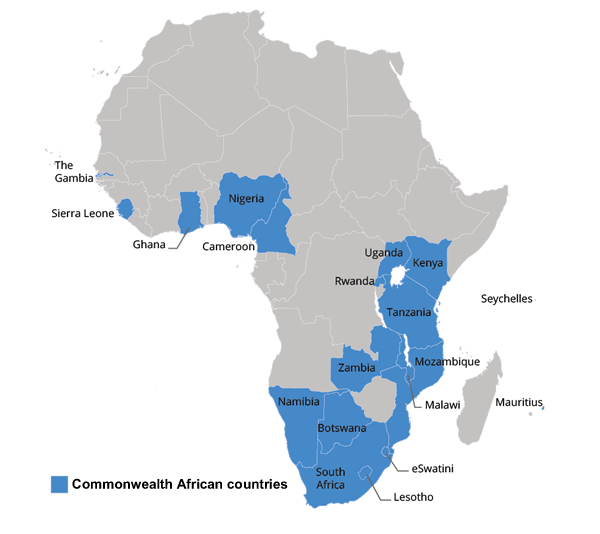Mentorship for the Commonwealth Africa Early Bar
With the amount of electronic data that traverse the digital eco-system, no 21st century trial lawyer is likely to succeed without knowledge of digital evidence and eDiscovery issues and their applicable methodology. A competent litigator must understand such electronic concepts of evidence in the digital domain and electronic discovery processes pertaining to document requests, production and analysis. He must also competently discuss technology-assisted review or predictive coding and defend the methods that their eDiscovery providers use. Above all, every lawyer needs basic knowledge of how the Internet works; how computer systems, tools and storage functionality are preserved; how digital forensic investigations are conducted; understanding forensic expert evidence and a host of other electronic dynamics relevant to 21st century litigation.
Because of these challenges and the limited access to the traditional mentors and mentoring opportunities the profession once had, new lawyers need a new model for law practice training opportunities in mentoring.
It is against this background and as our corporate social responsibility that we take a decentralized approach to mentoring and work with institutions and bar associations to provide mentoring opportunities for young lawyers within the African region as seen in the map.
Our mentoring programmes have four key elements:
- Performance development
- Career development
- Counselling
- Knowledge sharing

“Expert computer systems represent the future of legal practice. The attorney, who best understands the benefits and limitations of such systems, while remaining undaunted by nagging fears of computers, will have a significant advantage in completing a wide variety of professional tasks”. To be relevant in that order, lawyers should be knowledgeable across disciplines with the ability to examine critically, synthesise and evaluate knowledge across a broad range of disciplines.”
Commonwealth Africa Countries of Interest
Modern legal education from digital and technological perspectives are no longer a luxury, but a necessity for the world dealing with big data, artificial intelligence, blockchain technologies, the Internet of things, cybersecurity, the list is endless. Learning skills from both Law, technology and forensics, our students gain insights from each and see a bigger, interconnected picture. The community of lawyers from commonwealth Africa would not be an exception.
We are building the training resource base for these communities, spanning Nigeria, South Africa, Uganda, Kenya, Zimbabwe, Rwanda and Tanzania. That of Nigeria is ready as we have commenced the training of such lawyers in Nigeria. In no distant future we shall be ready with South Africa, Uganda, Kenya, Zimbabwe, Rwanda and Tanzania.
At DECFI we aim at:
-
providing African CommonWealth students with advanced knowledge and practical skills in the field of law, forensics and digital technologies from an international, comparative and interdisciplinary point of view.
-
preparing the early bars of these communities for the digital economy through exposure to cutting-edge issues and debates which traverse law, forensics policy-making, and technological issues through a series of courses, class discussions and guest interactions.
If you are a Nigerian Post Law School (1-7 years), please click Nigeria below to access Nigeria Platform, and take advantage of the Mentorship Program.
Certification of the early bar in Digital Evidence, eDiscovery law Practice and Law firm Automation
On evidence in the digital domain, Michael Arkfeldael of Arkfeld put it succinctly, Preservation, discovery, production and admissibility of digital evidence is the new "normal".
As legal work shifts almost entirely to the digital space,skills in digital evidence and eDiscovery have become an essential part of today’s litigation process. The days of searching through file cabinets, sitting on the floor and going through boxes of documents looking for evidence are over. As every case however described has its origin in the digital domain, the manual method of discovery has been replaced by the much faster digital method. In the past, parties shared physical records, information, and evidence relevant to a case. Today, paper records have largely been replaced by electronic documents as the primary source of potentially relevant information. Discovery is now largely focused on ESI that aligns with the current digital storage of records and evidence.
This is why the American Bar Association revised its Comment 8 to Rule 1.1, Model Rules of Professional Conduct 1.1. to read as follows: (emphasis added)
To maintain the requisite knowledge and skill, a lawyer should keep abreast of changes in the law and its practice, including the benefits and risks associated with relevant technology, engage in continuing study and education and comply with all continuing legal education requirements to which the lawyer is subject.
Whereas electronically stored information grows in volume and complexity, our universities and law schools are ill-prepared to provide digital evidence and e-discovery courses to prepare new lawyers for the potential work of examining electronic data, with a view to its use in litigation.
Consequently, it is no surprise that knowledge of evidence in the digital domain and e-Discovery has become a highly valued skill set by law firms, corporations and legal service providers. Now is the time for our early bar to uniformly learn about eDiscovery to uncover critical evidence and protect their clients’ litigation needs in the 21st century litigation.
It is against this background that the DECFI’s Digital Evidence and eDiscovery law Practice and Litigation presents a multidisciplinary project that enhances litigation competence through electronic discovery law courses, research, the development of information retrieval method and tools, and offering electronic discovery skills training for the early bar in the relevant commonwealth countries to which Nigeria is a member, through continuing legal educational offerings.
Proficiency Certification
To certify students proficiency in digital evidence, eDiscovery and law office automation. students must in addition to classroom work. rather than focus on traditional legal opinions pertaining mainly to legal practice & litigation, students are tasked to develop analytical, solutions-based papers for a wider audience, including stakeholders in legal education and policy-making. By discussing their research and findings with industry partners, students can gain valuable insight into the field and learn about the latest challenges faced by litigation in the digital era. This teaches them to think as problem-solvers.







